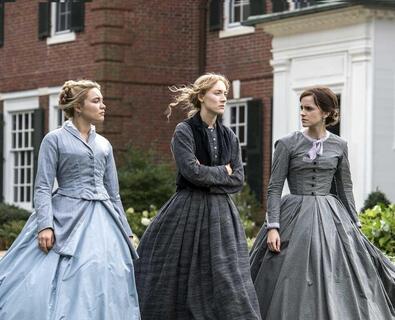
If I had been asked in October of 2019 how the cinematic year was going, I wouldn't have had great things to say. Spring's Atlanta Film Festival, where I saw a half dozen of 2018's favorite films, only yielded one standout, and a lackluster summer schedule didn't much help matters. However, some years are more back-loaded than others, and 2019 crammed in great film after great film as it came to a close, turning a subpar year into a strong one. Returning favorites like Martin Scorsese and Quentin Tarantino scored with some of their most personal and singular work, indie mainstays like Alex Ross Perry and Celine Sciamma turned in their best films, and up-and-comers like Greta Gerwig and Marielle Heller cemented their positions as some of cinema's most vital voices. Female directors and stories particularly shone bright in 2019, despite the Oscar's shunning of most of them, and Netflix had its strongest year thus far as a forum for both original and established voices to do whatever it is they want to do. Though Disney continues to dominate the heights of the box office and it might single-handedly destroy independent theaters, the critical state of the industry feels stronger than it did in the past few years, or at least it does until the streaming splurge is revealed to be a temporary bubble.
20 | 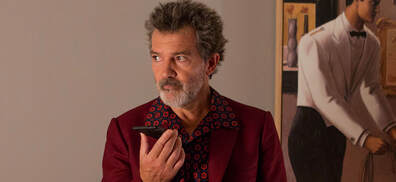 Pain and Glory What is it: A director confronts a period of bad health and writer's block. MVP: Pedro Almodovar, digging deep for an obviously personal and perceptive film. Why it's here: The quieter and introspective part of Almodovar takes over for a contemplative consideration of when to surrender to age and when to fight back against it. |
 The Art of Self-Defense What is it: Storefront dojos serve as the location for deadpan satire about masculinity and misogyny. MVP: Jesse Eisenberg, in his best role since The Social Network, perfecting a deadpan that should put him as the lead in the next Yorgos Lanthimos movie. Why it's here: A Fight Club-esque satire, The Art of Self-Defense turns its punches into kicks and its kicks into punches by taking ever-ripe targets and shooting them point-blank in the face. | 19 |
18 |  Parasite What is it: A working-poor family insinuates themselves into the employ of a wealthy family. MVP: Bong Joon-ho, propping up his characters like one of those hammer coin-op games, sticking their heads into the light and waiting for the mallet to come down. Why it's here: As immaculately crafted as the urban estate much of the film takes place in, Parasite is a heist film as allegory for ruthless class struggle, both within tiers and without. |
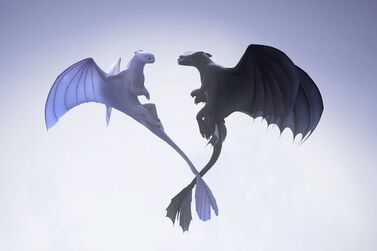 How to Train Your Dragon: The Hidden World What is it: The fantasy trilogy wraps up with Viking chief Hiccup and dragon Toothless considering separate paths. MVP: Dean DeBlois, completing his trilogy on his own terms and with the same visual poetry he's brought to the two previous entries. Why it's here: A personal can't-miss, it gets back to what bonded me to this franchise back in 2010 with awe-inspiring flight sequences, primal emotional beats, and a rousing score from composer John Powell. | 17 |
16 | 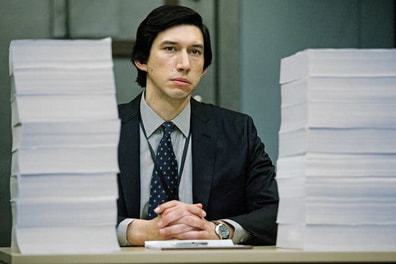 The Report What is it: A journalistic docudrama about the creation of the Feinstein report on torture during the War on Terror. MVP: Scott Z. Burns, stepping out of collaborator Steven Soderbergh's considerable shadow to make his own dense and vital drama. Why it's here: For an investigatory process that took years and resulted in thousands of pages, The Report makes it digestible by serving up one outrageous transgression after another. It's an especially timely bit of agitprop when so many of the CIA principals are being embraced by the left for pushing back, no matter how justifiably, against Trump. It must be remembered that they were enablers and liars. |
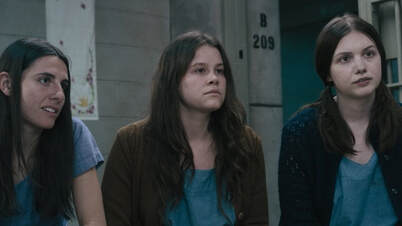 Charlie Says What is it: At the start of their prison terms, the Manson murderers are asked to consider why they did what they did. MVP: Merritt Weaver, bringing a difficult position into clarity with her performance as a prison therapist. Why it's here: One might come into Charlie Says with a later pick on this list fresh in their mind, but they leave it with a surprising amount of empathetic catharsis. | 15 |
14 | 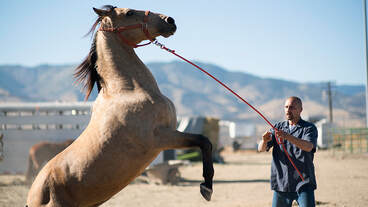 The Mustang What is it: A withdrawn convict is recruited into the prison's horse stewardship program. MVP: Matthias Schoenaerts, instilling a potentially predictable story with a fresh rawness that connects to why this kind of story keeps being told. Why it's here: Rough men being redeemed by rough animals, or the veil of masculinity being broken by gentleness. These themes work when done right, and Laure de Clermont-Tonnerre, in the year's best directorial debut, is doing them right. |
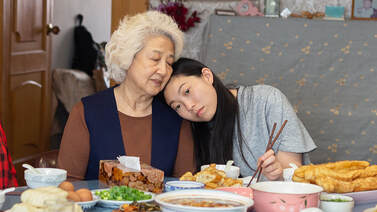 The Farewell What is it: A Chinese family refuses to tell their matriarch about her terminal illness and concoct a reason for their expatriated relatives to return to see her one last time. MVP: Zhao Shuzhen, warmly communicating what a deep loss her character would leave on her surviving family. Why it's here: Lulu Wang's autobiographical breakthrough has a pervasive sense of authenticity in every scene, from family dinners to ethical and cultural conversations about the central lie. | 13 |
12 | 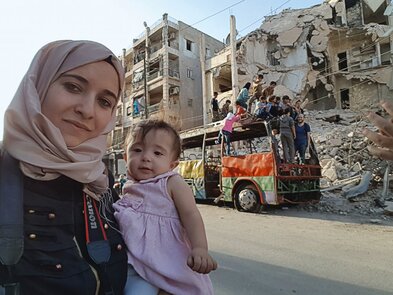 For Sama What is it: The grisly air siege of Aleppo is captured firsthand. MVP: Waad Al-Kateab, leaving the viewer nowhere to hide from her documentary's many dangerous and wrenching moments. Why it's here: Bearing witness is all that's left to the hopeless resistors of Bashar al-Assad and his ruthless allies. For Sama demonstrates why that can be just as important as picking up a rifle. |
 High Flying Bird What is it: A sports agent manipulates NBA owners, player reps, and his clients to bring an end to a costly lockout. MVP: Tarell Alvin McRaney, composing a rapid-fire script with the style that director Steven Soderbergh revels in and an emotional heft that elevates the film beyond its shot-on-an-iPhone gimmick. Why it's here: Tremendously imaginative in disruptive proposal to the NBA's business model, it's an inspiring glimpse into a more equitable world, one that dilutes and disperses the power of the ultra-rich to the actual generators of their cash and prestige. | 11 |
10 | 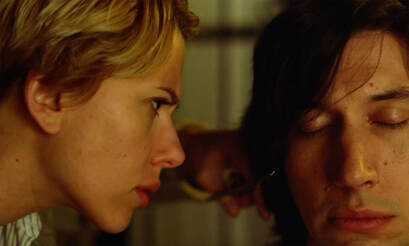 Marriage Story What is it: Noah Baumbach's semi-autobiographical story of the dissolution of a marriage between a director and an actor. MVP: Noah Baumbach, pouring so much of himself into what must have been a painful script and production and being paid back by his cast with great work all the way down the call sheet. Why it's here: The film unpacks one relationship's demise but also the process by which it will be broken up, combining well-researched competence porn with deeply-considered emotions. |
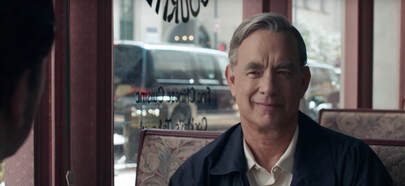 A Beautiful Day in the Neighborhood What is it: A journalist with a rough family background is assigned to write a profile of Fred Rogers. MVP: Marielle Heller, mixing the film's framing device and its events into a unique take on an oft-rote story. Why it's here: It turns out that any depiction of Mr. Rogers, in documentary or fiction, turns me into a blubbering mess. I can't have an emotional reaction like I did with this film and not place it high on this list. | 9 |
8 | 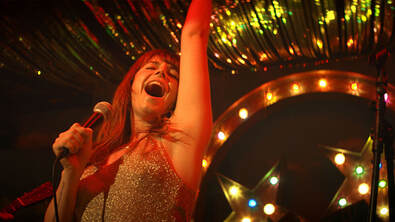 Wild Rose What is it: Scottish ex-con Rose-Lynn has dreams of leaving Glasgow for the bright lights of Nashville. MVP: Jessie Buckley, dominating the film in what should be a break-out performance. Why it's here: A classic tale told and portrayed with a realistic passion, Wild Rose's irresistible appeal and exuberance make it recommendable to everyone. |
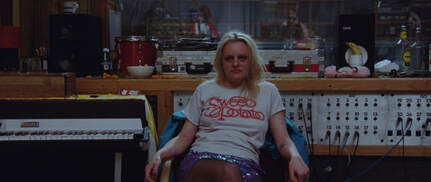 Her Smell What is it: A Courtney Love-esque rocker alienates her bandmates and her family before making an earnest attempt to correct past mistakes. MVP: Elisabeth Moss, making the viewer hate her and then pity her and then love her. Why it's here: Moss' Becky Something, in the throes of self-recrimination, still finds enough grace to sing all of Bryan Adams' Heaven to her daughter in a quiet scene that completely recalibrates the whole film. | 7 |
6 | 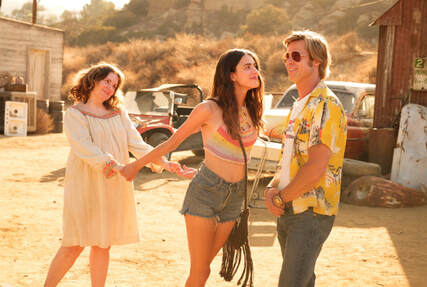 Once Upon a Time... in Hollywood What is it: Quentin Tarantino envisions the movie and TV business at a turning point through two created characters and one real one. MVP: Margot Robbie, grounding an otherwise very funny film in a real life tragedy. Why it's here: Languid and luxurious, the film finds what was valuable in this late-60's period and what needed to be disposed of. |
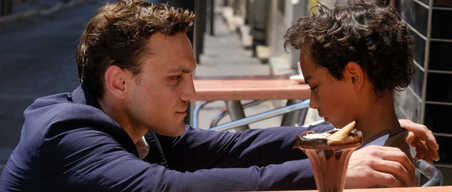 Transit What is it: Characters are cornered in Marseille ahead of the encroaching Nazi horde, desperate for the papers that will allow them to leave a crumbling Europe. MVP: Christian Petzold, conceiving brilliantly of a period film that contains contemporary casting and technology and thus bridging the gap between the horrors of the past and a potential future. Why it's here: Casablanca for a new age, Transit envisions a scarily plausible world, probably because versions of it have happened so frequently and because they continue to happen right now. | 5 |
4 |  1917 What is it: Two British soldiers in WWI are assigned a mission to get to the front and call off a doomed charge before it begins. MVP: George MacKay, grounding a technical achievement in real emotion. Why it's here: The film is coming in for some early Oscar backlash with criticisms about its simplicity or about its tone, but I detect so much commentary in the film's defiant lack of triumphalism. It gets how useless WWI was, and refuses to give the viewer any cheap catharsis. Some people died in vain, some people's lives weren't tossed into the meat grinder, and tomorrow's another day. |
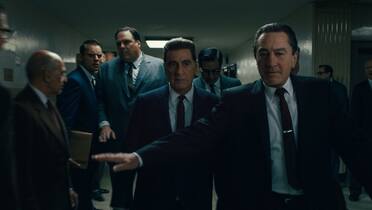 The Irishman What is it: A lunkheaded hitman considers his work alongside the Philly mob and labor leader Jimmy Hoffa. MVP: Martin Scorsese, putting a reflective period on his long career depicting organized crime. Why it's here: The titular Irishman is no schemer dreaming up new revenue sources for his underworld masters. He's an order-follower of the kind that made much of the 20th century such a disaster, and Scorsese's clear-eyed depiction of him as such means we might not need another gangster film again. | 3 |
2 | 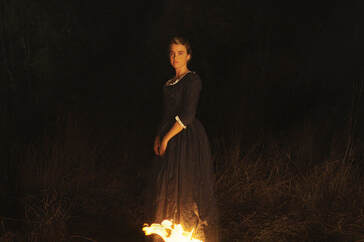 Portrait of a Lady on Fire What is it: An 18th century artist is called to a seaside French manor to create a painting of a young woman for her Italian fiance. MVP: DP Claire Mathon, painting a masterpiece on the screen as surely as the characters are. Why it's here: It communicates how intimate a process modeling can be and adds meaning to an entire artistic arena I had earlier discounted. Artists like the characters or the creators of the film itself must capital-S see their subjects, and Portrait of a Lady on Fire does exactly that. Director Celina Sciamma caps off a great decade for herself with an achingly beautiful romance. |
 Little Women What is it: A foursome of sisters encounter love and ambition in mid-19th century America. MVP: Greta Gerwig, making a centuries-old novel feel like it was written yesterday. Why it's here: The central conceit of the film, that everyone who comes in contact with the March family wants to be close of them, immediately puts this in my wheelhouse, but it's the subtle and successful attempts at modern relevance that make Little Women far more than another adaptation of an oft-adapted novel. | 1 |
 RSS Feed
RSS Feed